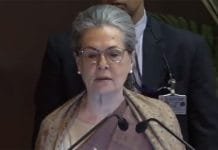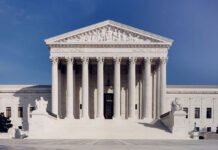INVC NEWS
New Delhi : The Supreme Court conducted a hearing on the petitions filed against the powers of the Enforcement Directorate (ED) under the Prevention of Money Laundering Act (PMLA). During the session, the Court announced its decision to continue the hearing on these matters, reflecting its commitment to a thorough judicial review. The Court acknowledged that while it might agree or disagree with the Solicitor General’s arguments, it is essential to allow the hearing to commence.
Petitions Challenge ED’s Authority Under the PMLA
The Court is examining several petitions, many initiated by individuals accused in money laundering cases. These petitions challenge the stringent measures enforced under the PMLA, suggesting they lead to drastic actions like freezing of assets and cessation of business operations without due process or a formal conviction.
[ez-toc]
Government’s Position on PMLA Validity
Representing the Centre, Solicitor General Tushar Mehta objected to the expanding scope of these challenges, noting that initially, only two provisions were contested, but the ambit has since widened. He defended the PMLA as a crucial piece of legislation for the nation’s well-being and legal framework.
The Debate Over Seizure and Prosecution Under PMLA
Advocate Kapil Sibal, representing the petitioners, argued that the Act’s seizure provisions should aid prosecution post-conviction. However, he pointed out that in the case of Vijay Madanlal, the PMLA was interpreted as a regulatory law, leading to severe consequences for the accused, including asset seizure and disruption of business, before any legal judgment is passed.
The National Pride in PMLA’s Asset Recovery Provisions
Solicitor General Mehta emphasized that as a nation, there should be pride in a provision that allows for the return of seized assets to claimants with legitimate interest, particularly highlighting the recovery of substantial amounts in bank fraud cases, which amounts to nearly 17,000 crore rupees returned to the victims.
Legislative History and Amendments to the PMLA
Sibal, with over 35 years in Parliament, expressed that he had never witnessed such a law, even as a member of the opposition. Justice Bela Trivedi queried about the original enactment of the law in 2002 and Sibal’s position at that time. Sibal responded, noting the improbability of the law’s application as witnessed today and pointing out that the problems lie with the subsequent amendments.
Anticipating the Supreme Court’s Direction on PMLA
The ongoing scrutiny by the Supreme Court over the PMLA and the ED’s powers is a critical juncture for India’s financial regulation landscape. The hearings are not just about legal interpretations; they are about ensuring that the application of laws aligns with the fundamental principles of justice, due process, and the protection of civil liberties.
















